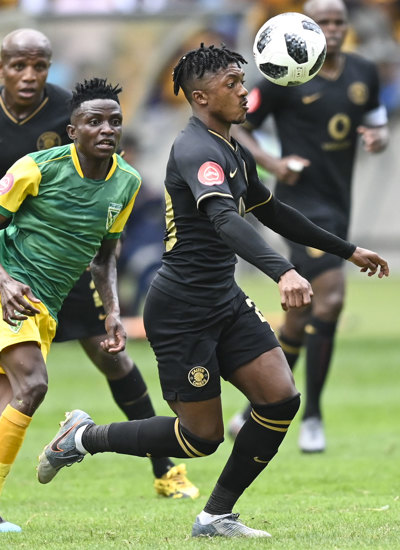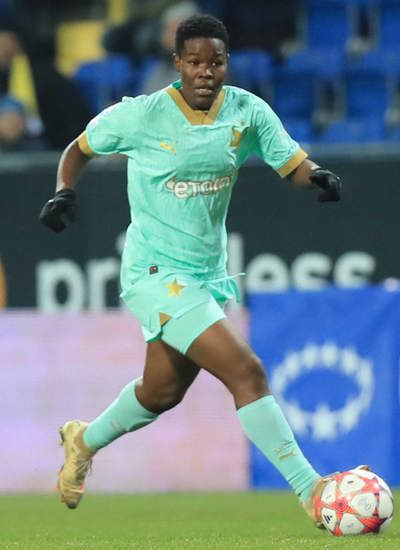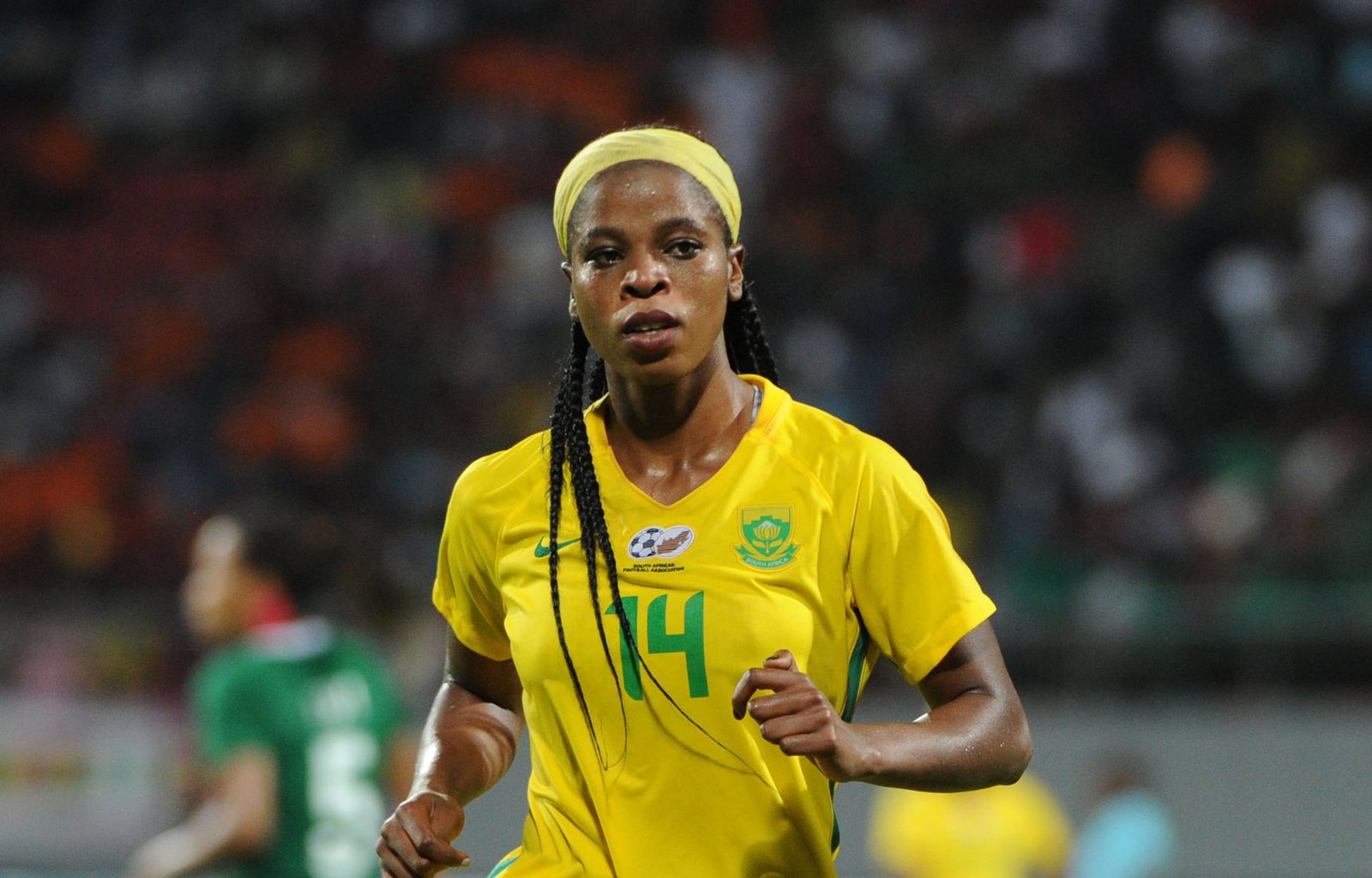

About
Andisiwe Mgcoyi
Mamelodi Sundowns forward Andisiwe Mgcoyi (34) was one of the first South African women to play in Europe when she joined Slovakian club Nove Zamky in 2013.
I don’t think things have really changed since I started my playing career.
The focus remains very much on the men’s game, particularly in Africa. In some European countries, women’s teams are looked at very differently; they are given the respect they deserve. Whereas in South Africa, our women’s team qualified for the World Cup but nothing really changed.
We have a league that is not fully professional – at best, it's semi-professional – and only three or four clubs come close to being professional. That means our national team is not able to compete against the likes of USA, Brazil, and big European nations.
One of the problems in South Africa is that women’s football is not well marketed. We can watch many international games on television here, but local women’s football matches are not regularly shown. I feel that if they were on TV, more people would become interested and support our teams.
Banyana Banyana [the South African national women’s team] won the Women's Africa Cup of Nations for the first time this year. This could have been the time when things really changed. But it didn’t. Despite the women’s team doing so well, there is little focus on them.
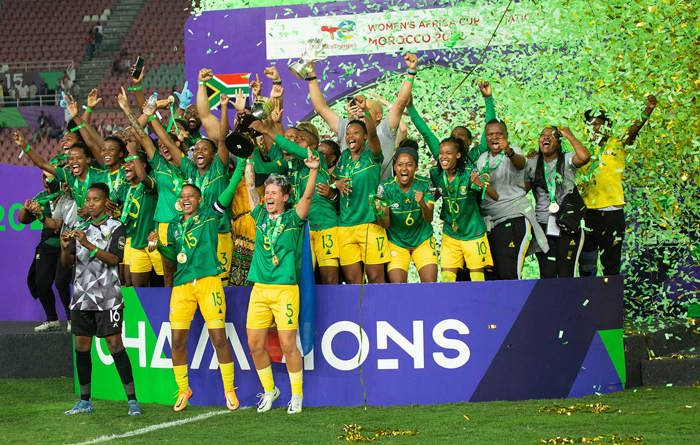
A lot of promises were made after winning the tournament and despite most being kept, I feel football officials should be doing more for the team and the players. As African champions, the team has qualified for the 2023 World Cup and we should do better than we did previously in 2019. But for that to happen, the preparations need to be 100 per cent – and I just don’t see that happening.
As more players are going overseas, the importance of a player union is increasing. I faced many problems when I was playing in Kosovo: we were not allowed to go out, we had to stay in our rooms and could only go to training and matches, and many of the financial promises were not kept. Ultimately, that is why I returned to South Africa.
These are the kind of things that the younger players should be able to avoid. You have to start teaching players at a young age. That is why academies are a good thing.
At my club Mamelodi Sundowns, we have an academy where players learn from an early age all the things they need to learn. As they progress, they are equipped to handle things. I am involved with coaching the under-15 side and I can see myself doing a similar role when I stop playing.
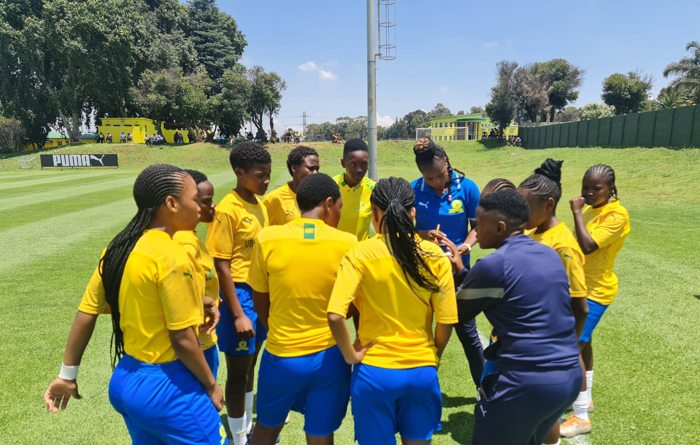
Women’s footballers don’t have the same opportunities men's players have. Despite scoring in the first CAF Women’s Champions League final in 2021 and having played at the Olympics and in many European countries, I have very little to show for it. I am still renting a home, I don’t own my own house.
It used to make me angry. But since working with younger players, I instead concentrate on them. I want to help bring about changes, so that they will not have to go through what I went through; so that they can have a better life and enjoy football.
But I fear these changes will take a very long time.
In Europe, some of these changes have already started, and young players can afford to buy a house and a car. In Africa, though, it is very different.
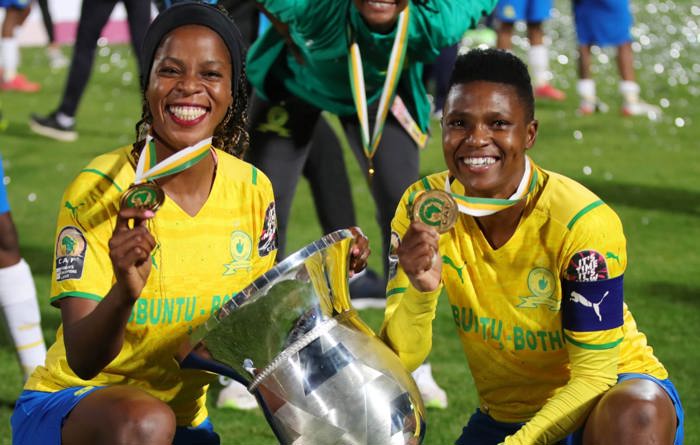
We have many footballing legends, like Portia Modise [the first African player to score over 100 international goals] and Veronica Phewa, and some of them are struggling. They paved the way for those that came after them, but very few have something to show for their many years of sacrifice.
What makes it even more disappointing, is that so little has changed. We are still experiencing the same thing that they [the legends] experienced when they were playing.
Hopefully the younger players coming through now will have it much better, but time is running out. We should not be speaking about this for years. It needs to change – and this change has to happen in Africa, not just in Europe and America.
When players raise their voice or fight for their rights, as they did in Europe and in the USA, they get heard and it can bring about change.
In South Africa, though, very few people raise their voice for things to be changed. And when people do raise their voice, they are often labeled as being a bad person or a trouble-maker, just because they are telling the truth.
That is why I feel like things will never change, or that it will take time. I am trying to change things by developing our future stars: players who will have a better future because of football.
